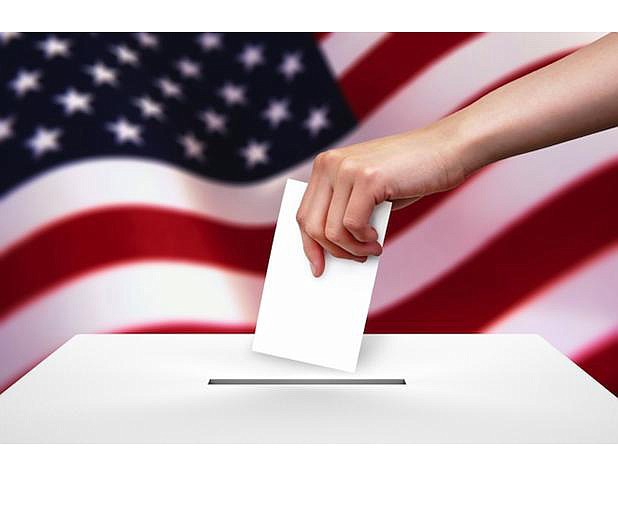American women couldn't vote until just over 99 years ago - about the time our country was 144 years old.
But, hey: We've come a long way, Baby - considering that a 17th-century law in Massachusetts, home of the stodgy Puritans, announced that women would be subjected to the same treatment as witches if they lured men into marriage via the use of high-heeled shoes.
It wasn't until 1835 that married women in Tennessee were allowed to own and manage property in their own name "during the incapacity of their spouse." In 1868, married women in Georgia were allowed to own - but not control - property in their own name. A year later, in 1869, both Tennessee and Georgia women were finally "granted separate economy" - the legal term for the ability to earn their own income and retain it for their own use, independent of their husbands.
In 1975, the Supreme Court of Tennessee ruled that a woman, upon marriage, may elect to retain her own surname or adopt the surname of her husband. We obtained the freedom to choose our last names - finally, just 39 years ago! But marital rape was OK until 2005. And we're still fighting to control the health and fate of our bodies.
All that said, sad as it seems, it's little wonder that Southern Baptists are tying themselves in doctrinal knots over what women can do inside their churches: "For a woman to teach and preach to adult men is to defy God's Word and God's design," wrote Owen Strachan, professor of Christian theology at Midwestern Baptist Theological Seminary recently.
There you have it, moms. When your son turns 18, he can just tell you to go bite yourself - just like your husband, father, brothers, uncles, pastors and deacons always could.
Lest anyone think this is just an oddity from a small Southern fringe church, think again. The Southern Baptist Convention is the world's largest Baptist denomination, and the Baptists make up the second-largest Christian denomination in the United States - smaller only than the Catholic Church.
Naturally, the Southern Baptists don't call this an equity question. They invented their own word for it: "complementarianism" - the view that "men and women are equal, but have different roles and responsibilities, with men serving as leaders of the home and the church. Women can "participate" on Southern Baptist boards, faculties, mission teams, writer pools, and professional staffs. But women "are not eligible" to serve as pastors.
All of this doctrinal squirming makes church in the orchard look better every day. Out there, where - as Emily Dickinson described it - the church dome is the sky and the Bobolinks are the choristers, God keeps sermons short, clear and open.
Gender equality means women and men, and girls and boys, enjoy the same rights, resources, opportunities and protections. It does not require girls and boys, or women and men, be the same, or be treated exactly alike. It does require fair access.
How does this concept play in our real world?
Women are 50.8% of the U.S. population, earn more than 57% of undergraduate degrees (59% of master's degrees, 48.5% of law degrees, 47.5% of medical degrees, 38% of business administration master's and 49% of specialized master's) yet account for 47% of the U.S. labor force.
Although we hold almost 52% of all management jobs, we lag substantially behind men in terms of our representation in leadership, according to the Center for American Progress. In the legal profession, we are 45% of associates but only 22.7% of partners and 19% of equity partners. In medicine, we are 40% of all physicians and surgeons, but only 16% of permanent medical school deans. In academia, we have earned the majority of doctorates for eight consecutive years, but are only 32% of full professors and 30% of college presidents. In the financial services industry, we are 61% of accountants and auditors, 53% of financial managers, and 37% of financial analysts. But we are only 12.5% of chief financial officers in Fortune 500 companies.
We are half the population, but represent only 24% of the U.S. House of Representatives, 23% of the Senate, 28% of seats in state legislatures, 18% of governors and 20% of the mayors in America's 100 largest American cities.
As paltry as this already is, our overall gains in the 1990s and 2000s have slowed. In a broad range of fields, our presence in top leadership positions - as equity law partners, medical school deans, and CEOs - remains stuck at 5% to 20%.
And, yes, there is an enormous gap between the fortunes of women and men. More than a half century after the U.S. passed the Equal Pay Act, a woman working full time on average still earns only 80.7 cents for every dollar a man earns. Our median annual earnings - as of 2017 - were $9,909 less than men's, according to the U.S. Census Bureau.
The Institute for Women's Policy Research estimates that pay parity won't be reached until 2059.
Clearly, those researchers haven't met the Baptists - members of America's second largest church.
But there is a bright spot. We started with women's voting rights, and we'll end with women's voting habits.
Since 1980, the percent of eligible women voters who said they voted has been higher than the percent of men in every presidential election, says the Center for American Women and Politics.
Go, women: Go forward and vote. Every time the polls open, vote.
